Pubs have long been at the heart of countless communities, serving as more than just places to quench thirst—they are cultural landmarks, social hubs, and historical witnesses to the evolution of human interaction. The rich tapestry of pub community history is a testament to their enduring relevance, tracing back centuries of tradition, camaraderie, and cultural exchange. From the humble beginnings of medieval taverns to the vibrant, modern community hubs they represent today, pubs have played a pivotal role in shaping local identities and fostering connections among neighbors. This article delves into the fascinating journey of pub culture, exploring its historical roots, enduring traditions, and continued importance in building and strengthening community bonds.
Key Takeaways
– Pubs Build Stronger Community Bonds: They act as gathering spots for people of all ages and backgrounds, fostering social connections and reducing isolation.
– Economic Powerhouses: Pubs support local economies by creating jobs and boosting business through foot traffic and partnerships with local suppliers.
– Cultural Custodians: They preserve local traditions, dialects, and customs, serving as hubs for cultural celebration and storytelling.
– Community Event Hubs: Pubs host events like charity fundraisers and sports watch parties, bringing people together and reinforcing shared identities.
– Mental Health Supporters: Socializing in a pub setting can reduce feelings of loneliness and depression, promoting overall well-being.
– Local Identity Symbols: Pubs often become iconic landmarks, representing the unique atmosphere and history of their neighborhoods.
– Educational and Intellectual Spaces: They host talks, workshops, and events that contribute to the intellectual life of the community.
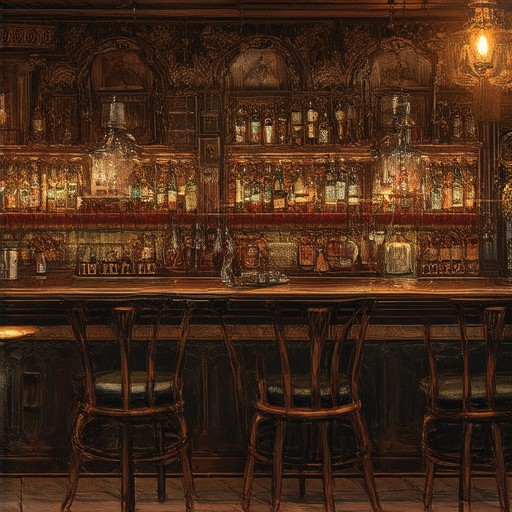
What is the origin of the pub culture?
The origins of pub culture can be traced back to ancient times, evolving through various iterations in different civilizations and cultures. Here’s a detailed overview of its historical development:
- Roman Taverns : The concept of pubs can be dated back to Roman Britain, where taverns served as resting points for travelers. These establishments provided simple accommodations and refreshments, often featuring food and drink, particularly wine.
- Anglo-Saxon Alehouses : During the Middle Ages, these taverns evolved into alehouses, which focused on serving beer. The production of beer became more widespread, and these establishments began to cater to a growing number of patrons.
- Rise of Coaching Inns : In the 18th century, coaching inns emerged along major trade routes. These inns provided stabling for horses and accommodation for travelers. They also featured public spaces where people could gather, eat, and drink, laying the groundwork for modern pubs.
- Modern Public Houses : By the early 19th century, the concept of the modern pub began to take shape. Pubs started to resemble what we recognize today, with separate bars and dining areas. The rise of industrialization and urbanization contributed to the popularity of pubs as social hubs.
Pubs have long been central to local communities, serving as gathering places for socializing, celebrating, and relaxing. Over the years, they’ve adapted to changing tastes and societal needs, blending traditional elements with contemporary amenities. Today, pubs remain a vital part of cultural and social life, continuing a legacy that spans thousands of years.
For more insights into the rich history and vibrant culture of pubs, visit Dufferin Arms to explore articles that celebrate the enduring charm and significance of these iconic establishments.
The History of the Pub
The history of the pub is a rich and fascinating journey that dates back centuries, reflecting the cultural evolution of society itself. From ancient times to the modern age, the pub has served as more than just a place to drink alcohol—it has been a hub for community, commerce, and storytelling.
Origins of the Pub
The origins of the pub can be traced back to the Roman era, where tabernae—small inns or taverns—were established along major trade routes. These establishments catered to travelers and soldiers, offering shelter, food, and drink. After the Roman departure, the Anglo-Saxons and Normans further developed these concepts, leading to the emergence of alehouses in the medieval period.
Medieval Alehouses
By the 10th century, alehouses had become integral to village life in England. These early pubs were simple establishments, often little more than a wooden building with a hole in the floor for serving drinks. Beer was the primary beverage, made using traditional brewing methods that have changed little over the centuries.
The Rise of Breweries
During the Industrial Revolution, the production of beer became more mechanized, leading to the rise of large breweries. This period saw the creation of iconic brands and the widespread availability of beer, transforming the pub landscape. Pubs began to take on more elaborate designs, featuring cozy interiors and distinct signs that became landmarks in towns and cities.
Victorian and Edwardian Elegance
By the Victorian era, pubs had evolved into elegant establishments, often adorned with intricate wood carvings, stained glass windows, and ornate mirrors. These pubs were not just places to drink but also social centers, hosting everything from local meetings to musical performances.
Modern Pubs and Cultural Significance
Today, pubs remain a vital part of British culture. They continue to serve as gathering spots for locals, offering a warm atmosphere and a chance to connect with neighbors. Modern pubs often feature a diverse selection of beers, wines, and cocktails, catering to a variety of tastes. Many still retain their traditional charm, blending history with contemporary flair.
Pubs Around the World
While the pub concept originated in the UK, it has spread globally, adapting to local cultures. Countries like Ireland, Germany, and Australia have their own unique versions of pubs, each with their own traditions and quirks. These establishments play a crucial role in preserving local heritage and fostering community spirit worldwide.
- Dufferin Arms explores the rich history and cultural significance of pubs, offering insights into their evolution and enduring appeal.
- Pub History provides a comprehensive archive of pub-related articles and resources, delving into the past and present of public houses.
- Beer History UK focuses on the historical development of brewing and pubs, showcasing the industry’s impact on British culture.
- The Pub offers a global perspective on pubs, highlighting their role in different countries and their unique characteristics.
From ancient tabernae to modern watering holes, the pub has come a long way. Its enduring popularity lies in its ability to adapt while retaining the essence of what makes it special—a place to relax, connect, and celebrate life.
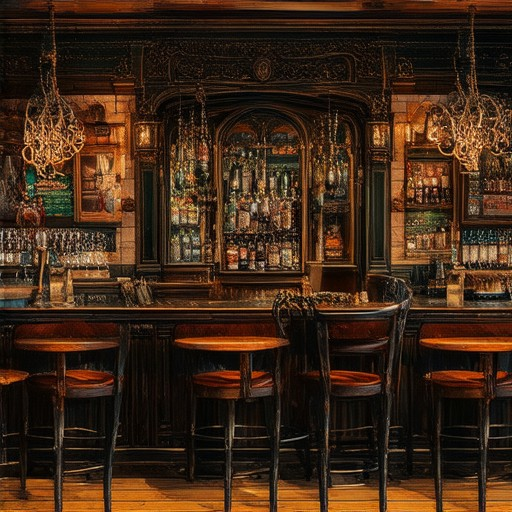
Traditions of Pub Culture
Pub culture has long been a cornerstone of social interaction, with its roots tracing back centuries. Here are the key traditions that define pub culture:
The History and Evolution
Pubs have evolved from humble inns to become vibrant community hubs. Originally serving as resting stops for travelers, they later became centers for local social life, often doubling as neighborhood gathering spots. Over time, pubs have embraced their role as cultural landmarks, preserving history and fostering connections among regulars.
The Atmosphere
Pubs are known for their unique ambiance, characterized by comfortable seating, dark wood tones, and dim lighting. The intimate setting encourages conversation and camaraderie, making them ideal spaces for unwinding after a busy day.
Social Interaction
Pubs are more than just places to drink—they are social oases. Patrons engage in casual chats, celebrate milestones, and share stories over pints. Whether it’s after-work drinks or family gatherings, pubs bring people together in a relaxed environment.
Pub Grub
Beyond drinks, pubs offer hearty meals that complement the beverage experience. Traditional pub fare includes fish and chips, burgers, and pies, crafted to pair perfectly with ales and lagers. This culinary tradition adds to the overall enjoyment of a pub visit.
Cultural Significance
Pubs are not just buildings; they are symbols of local identity. They reflect the values and history of their communities, serving as witnesses to generations of shared experiences. This cultural significance ensures that pubs remain integral to the social fabric of many neighborhoods.
Pub Games
A staple of pub culture, games like darts, pool, and dominoes provide entertainment for patrons of all ages. These activities foster friendly competition and create opportunities for interaction, enriching the pub experience.
Preserving Pub Heritage
Dufferin Arms, a dedicated blog, delves into the rich tapestry of pub culture. Explore articles that uncover the unique stories behind pubs, their historical evolution, and their enduring charm. Discover why pubs continue to hold a special place in our hearts and communities.
Learn more about pub culture and its traditions .
Explore the fascinating world of pubs through Dufferin Arms, where the legacy and allure of these establishments await your discovery.
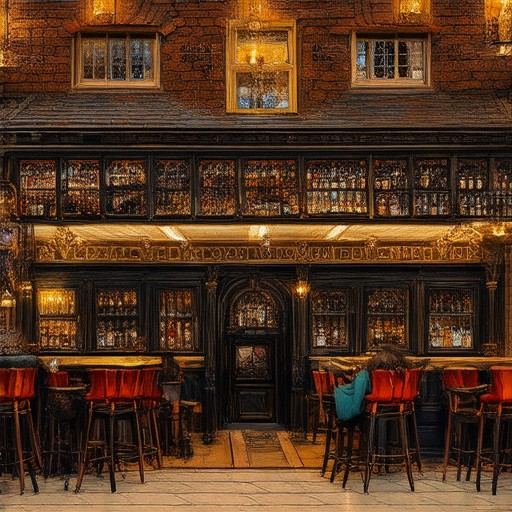
Why are pubs important to the community?
The Role of Pubs in the Community
Pubs are more than just places to enjoy a drink; they are integral to the social fabric of many communities. Here’s why pubs matter:
- Social Cohesion : Pubs act as gathering spots for people of all ages and backgrounds, fostering connections and reducing social isolation. They create opportunities for conversations and shared experiences, strengthening community bonds.
- Economic Contribution : Pubs support local economies by employing residents and purchasing goods from local suppliers. This economic activity benefits the community by creating jobs and fostering entrepreneurship.
- Cultural Preservation : Many pubs have historical significance, serving as venues for generations of social interactions. They preserve local traditions and stories, acting as cultural landmarks that reflect the heritage of an area.
- Community Events : Pubs often host events such as charity fundraisers, sports watch parties, and themed nights. These gatherings bring people together and contribute positively to the community.
- Mental Health Support : Socializing in a comfortable environment like a pub can reduce feelings of loneliness and depression. Regular interactions in familiar settings promote mental well-being.
- Local Identity : Pubs often become symbols of neighborhoods, each offering a unique atmosphere and history. They foster a sense of pride and belonging among residents.
- Educational Spaces : Some pubs host talks, workshops, and other educational events, contributing to the intellectual life of the community.
In essence, pubs are more than just establishments; they are community hubs that play a vital role in social, economic, and cultural life.
How Has the Pub Contributed to the History and Identity of Local Communities?
Pubs have played a vital role in shaping the history and identity of countless local communities around the world. These establishments are more than just places to gather—they are cultural landmarks that reflect the values, traditions, and stories of the people who frequent them.
1. Historical Significance
Pubs have served as gathering spots for generations, often becoming focal points in the lives of locals. They have witnessed significant historical events, acted as meeting places for community discussions, and preserved local lore through storytelling and traditions. Many pubs have historical ties to their neighborhoods, often dating back centuries, making them invaluable cultural assets.
2. Social Connection
Pubs function as hubs for social interaction, fostering connections between neighbors and creating a sense of belonging. Regular patrons often develop strong bonds over shared experiences, whether it’s enjoying a drink, playing games, or simply catching up on local news. This sense of community is reinforced through shared rituals and traditions, making pubs central to the fabric of social life in many areas.
3. Cultural Preservation
Local pubs often serve as custodians of regional culture, maintaining traditions, dialects, and customs that might otherwise fade away. From hosting traditional festivals to showcasing local artwork, pubs play a key role in celebrating and preserving the unique characteristics of a community. They provide a platform for artists, musicians, and storytellers to share their talents, enriching the cultural landscape.
4. Economic Impact
Pubs contribute to the local economy by supporting nearby businesses and creating jobs. They attract foot traffic, which benefits shops, restaurants, and other services in the area. Additionally, pubs often collaborate with local producers to source ingredients or products, further boosting the local economy.
5. Community Events
Pubs are frequently venues for community events, such as charity fundraisers, local sports celebrations, and cultural festivals. These gatherings not only bring people together but also strengthen social ties and reinforce a sense of shared identity. By hosting these events, pubs become pillars of community life, ensuring their continued relevance and impact.
At Dufferin Arms, we recognize the importance of pubs in preserving history and fostering community. We strive to honor this legacy by celebrating the unique stories and traditions that define our local neighborhoods. Explore our articles to delve deeper into the rich tapestry of pub culture and its enduring appeal.
Learn more about Dufferin Arms .
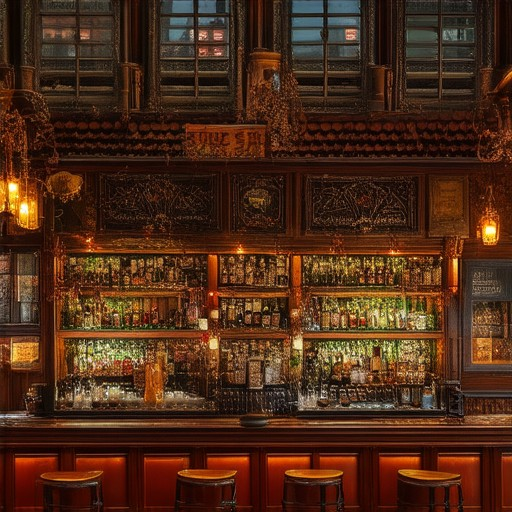
Pubs and Local Community History
Pubs have long served as vital social hubs, playing a significant role in shaping the history and identity of local communities. These establishments foster a sense of belonging, preserve cultural heritage, and bring people together through shared experiences.
The Social Hub
Pubs are more than just places to drink; they are communal spaces where stories are shared, memories are made, and local cultures thrive. Regular patrons often become part of the pub’s extended family, creating a tight-knit community atmosphere.
Historical Significance
Historically, pubs have been central to the social fabric of towns and villages. They have served as gathering points for locals, often reflecting the values and history of the community. Many pubs have been around for centuries, becoming witnesses to and participants in local events and transformations.
Economic Impact
Pubs contribute to the local economy by supporting nearby businesses and providing employment opportunities. From hosting community events to offering goods and services, pubs play a crucial role in sustaining vibrant neighborhoods.
Cultural Preservation
Traditional pubs often maintain and celebrate local customs and traditions. Whether through annual festivals, live music sessions, or simply the way they’re run, pubs help preserve the cultural identity of their communities.
Storytelling and Memory
Pubs are perfect settings for storytelling. Patrons often share tales of local history, legendary figures, and memorable moments, ensuring that community narratives are passed down through generations.
Community Events
From charity fundraisers to sports matches, pubs frequently host events that bring people together. These gatherings strengthen social bonds and reinforce a sense of shared identity among attendees.
Competitor Mention
While Dufferin Arms stands out, other notable platforms like Pintcast and The Pub Curator also highlight the cultural significance of pubs. These resources offer deeper insights into pub history and community impact.
Dufferin Arms takes pride in celebrating the rich tapestry of pub culture, knowing that our contribution to local communities is both meaningful and enduring. By preserving and promoting the stories behind our pubs, we honor the history and identity of the neighborhoods we serve.
Conclusion
In essence, pubs are integral to the history and identity of local communities. They serve as spaces for connection, preservation, and storytelling, making them invaluable assets to the social and cultural landscape of any area.

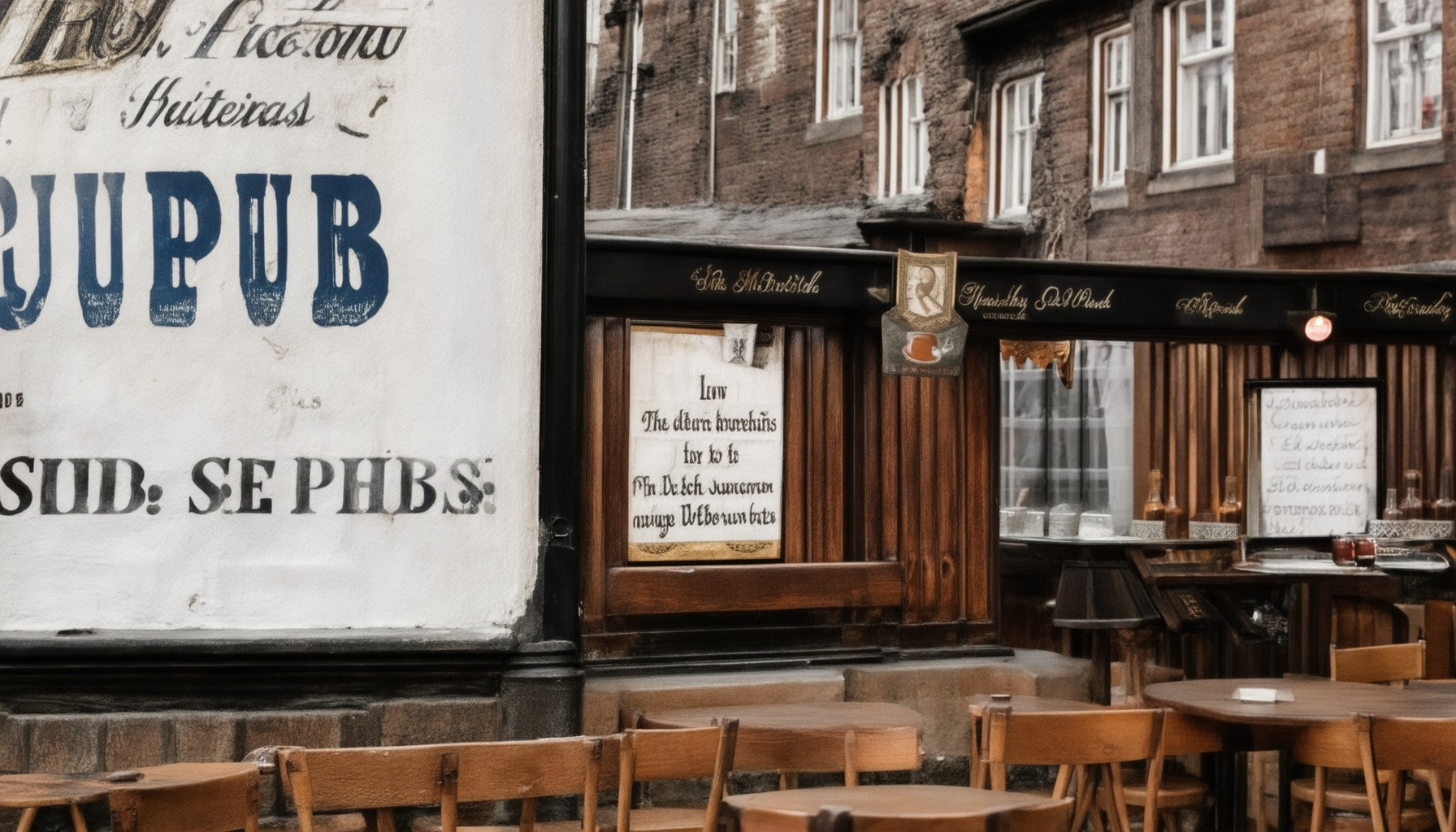
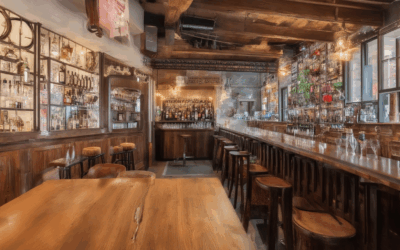
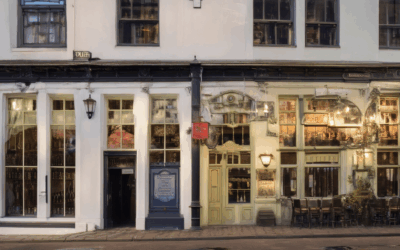
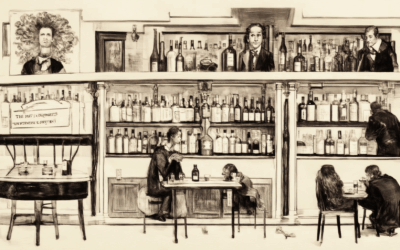
0 Comments